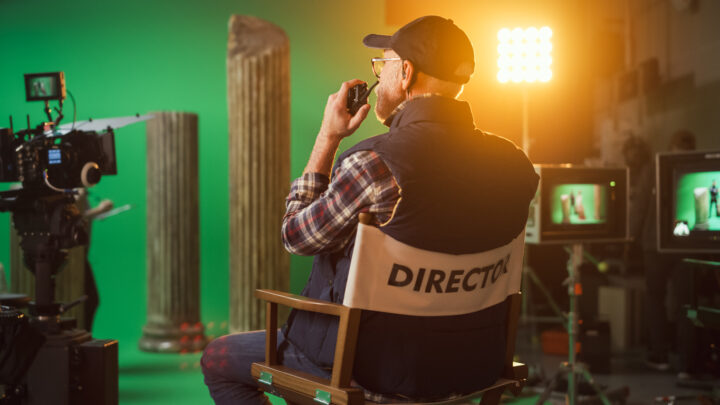Dyslexic thinking often gets framed through everything it makes harder, but that’s only half the story.

The truth is, the way people with this form of neurodivergence process information can offer real advantages in certain careers. From creative problem-solving to big-picture vision, dyslexia brings a kind of innovation that can’t always be taught. Here are surprising careers where the way you naturally think isn’t a weakness; it’s an asset. Don’t count yourself out—you’re capable of so much more than you think.
1. Entrepreneur

Running your own business demands creative problem-solving, resilience, and the ability to think outside rigid systems—all skills that often come naturally to dyslexic thinkers. Spotting gaps in the market and creating unique solutions requires the kind of nonlinear thinking many entrepreneurs with dyslexia thrive on.
Instead of getting bogged down by conventional methods, dyslexic entrepreneurs often take bold, unconventional routes. They’re more comfortable experimenting, adapting, and building something that didn’t exist before because they’re used to navigating the world in a less traditional way.
2. Architect

Architects need strong spatial awareness, imagination, and the ability to visualise complex structures in three dimensions—skills many dyslexic minds are naturally wired for. Where other people see a flat blueprint, dyslexic thinkers can often “walk through” a design in their heads long before it’s built.
Having the ability to mentally manipulate space and form is a huge asset when creating innovative, functional designs. Architecture isn’t just about precision; it’s about vision, and that’s something dyslexic thinking can bring to the table in ways neurotypical people might not even see coming.
3. Film director

Directing a film requires juggling dozens of moving parts, from visual storytelling to emotional pacing. Dyslexic thinkers, with their holistic way of seeing connections and big-picture storytelling, often excel at weaving all those threads into something coherent and powerful.
It’s less about obsessing over every line of dialogue and more about creating an immersive world for viewers. Directors with dyslexia often have an intuitive feel for tone, atmosphere, and how separate scenes fit together into an emotional arc that feels deeply human.
4. Product designer

Designing products that people actually want to use takes a blend of creativity, empathy, and problem-solving. People with dyslexia often come up with really creative solutions that don’t even occur to other people because they’re not locked into one way of approaching a problem.
Whether it’s tech devices, home goods, or even apps, product design rewards minds that can jump between different user experiences, spot flaws, and imagine improvements without getting trapped in linear thinking, and that’s where dyslexic creativity shines.
5. Chef

Being a great chef isn’t just about following recipes. It’s about experimentation, creativity, and sensing how different ingredients and techniques interact. Dyslexic thinkers often excel at thinking in sensory ways rather than purely verbal or written ones, which can give them a real edge in the kitchen.
Instead of rigidly following instructions, dyslexic chefs often create by feel and intuition, allowing them to invent new dishes, flavour profiles, and techniques that other people might not even think to try. This can make them real innovators in the culinary field, for sure.
6. Marketing strategist

Marketing isn’t just about selling things—it’s about understanding people, trends, and cultural changes. People with dyslexia, who often naturally see patterns and connections no one else does, can spot opportunities and creative messaging angles faster than traditional approaches sometimes allow.
In a world where standing out matters more than ever, the ability to think differently—to disrupt instead of copy—is a massive advantage. Dyslexic marketers often excel at this because thinking differently isn’t something they switch on—it’s their default.
7. Inventor or engineer

Engineering often demands imaginative problem-solving, especially in fields like robotics, aerospace, and environmental design. Dyslexic minds, which are great at visualising complex systems and noticing how parts fit together, bring unique strengths to these careers.
It’s not always about having a perfectly detailed blueprint from the start. Sometimes it’s about seeing a possibility, experimenting, adjusting, and inventing something no one else had even considered yet, and that’s a space where dyslexic thinkers often thrive.
8. Fashion designer

Fashion design is more than just making clothes—it’s about telling stories through shape, colour, movement, and fabric. Many dyslexic people have an instinctive feel for aesthetics and innovation, able to envision textures, cuts, and styles in ways that feel fresh and unexpected. Because dyslexic thinking often bypasses rigid rules, these designers are less afraid to take risks, and more willing to create something that pushes boundaries instead of playing it safe.
9. Wildlife conservationist

Working in conservation often demands the ability to think long-term, see complex ecosystems holistically, and adapt quickly to changing conditions—all strengths of people with dyslexia. Being able to visualise how systems interact without getting bogged down in linear steps is a massive asset.
Dyslexic conservationists often bring fresh approaches to problem-solving, whether it’s designing better protected areas, coordinating complex fieldwork, or navigating policy changes in a way that serves the bigger ecological picture.
10. Music producer

Producing music means pulling together sounds, rhythms, emotions, and technology into a cohesive whole. Those with dyslexia often thrive here because they naturally think in patterns and feelings rather than strict sequences.
Producing isn’t just technical; it’s deeply intuitive. Dyslexic minds often sense how different elements will layer and interact long before they’re fully formed, allowing them to create tracks that feel organic, unexpected, and emotionally powerful.
11. Event planner

Planning events might sound like a logistics game, but it’s really about creativity, big-picture vision, and improvisation when things don’t go according to plan. Dyslexic thinkers often excel at managing moving pieces because they naturally think holistically instead of getting trapped in rigid timelines. They can visualise the flow of an event—how guests will move, how energy will change—and adjust in real time to create a seamless experience even when chaos is bubbling just under the surface.
12. Stand-up comedian

Comedy might not be the first career that comes to mind, but dyslexic thinkers often have a natural talent for it. Great comedy relies on pattern recognition, quick pivots, unexpected associations, and seeing the absurdity that no one else seems to notice until it’s pointed out to them. Because their minds are wired to think differently, dyslexic comedians often bring a unique voice to the stage—spotting angles, rhythms, and punchlines that feel fresh because they truly are.
13. Crisis manager

Whether it’s PR disasters, operational meltdowns, or emergency responses, crisis management is all about staying calm under pressure, seeing the big picture quickly, and adapting without getting overwhelmed by step-by-step instructions.
Dyslexic thinkers, who are often used to navigating unconventional paths and thinking on their feet, can be brilliant in fast-moving, high-pressure environments. They’re often better at finding creative solutions in moments where rigid thinking would fall apart.




